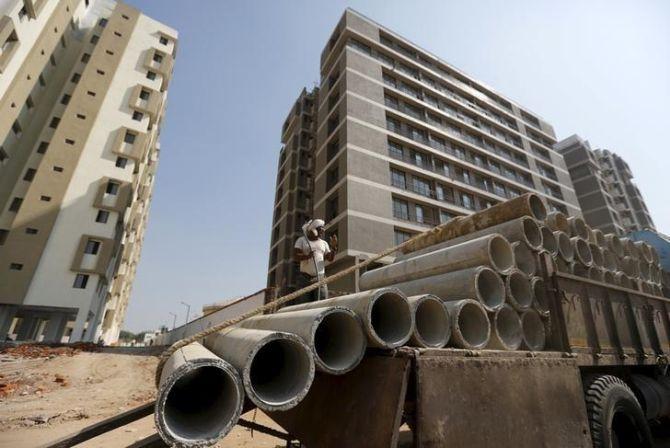The past 18 months have seen a resurgence in the real estate industry, with developers regaining the ground lost to the Covid-19 pandemic.

But it is once again adding inventory at a pace faster than sales.
The industry’s inventory rose by 28 per cent year-on-year (Y-o-Y) in H1FY24, com–pared to a 25.5 per cent year-on-year increase in net sales during the same period.
This is in contrast to H1FY23, when net sales rose by 24.2 per cent Y-o-Y, while the inventory level increased by just 8.2 per cent Y-o-Y.
As a result, the combined inventory of top listed companies reached a record high of Rs 1.045 trillion, equivalent to 33 months of sales at the current pace.
This is a 44 per cent increase from the recent low of Rs 72,572 crore at the end of March 2021.
Realty companies in Business Standard’s Sample reported combined net sales of Rs 17,464 crore during the April-September 2023 period, a 25.5 per cent increase from Rs 13,911 crore a year ago.
These companies’ combined inventory of unsold properties rose by 28 per cent Y-o-Y in H1FY24, up from Rs 81,720 crore a year ago.
This analysis is based on a common sample of 19 listed real estate companies that are part of the BSE500, BSE Midcap, and BSE Smallcap indices.
Some of the large realty companies in the Business Standard sample include DLF, Oberoi Realty, Godrej Properties, Brigade Enterprises, Prestige Estates, and Puravankara.
The listed developers with relatively large inventory at the end of H1FY24 in the sample include Prestige Estates (Rs 19,864 crore), DLF (Rs 19,570 crore), Godrej Properties (Rs 17,029 crore), Oberoi Realty (Rs 8,260 crore), and Puravankara (Rs 8,179 crore).
The sample excludes Macrotech Developers, which listed in April 2021.
Over the past five years, the industry’s combined net sales have grown at a compound annual rate (CAGR) of 4 per cent, compared to a 6.3 per cent CAGR in inventory during the September 2018-23 period.
As a result, the industry’s inventory-to-net sales ratio is nearly 25 per cent higher than the pre-pandemic average.
In the past 18 months, the industry’s combined net sales have grown at an average of 24.9 per cent Y-o-Y, compared to an average Y-o-Y decline of 23.4 per cent during the September 2019-March 2021 period.
The recovery in sales allowed the industry to liquidate inventory that had piled up due to the pandemic.
As a result, the industry’s inventory-to-net sales ratio declined from a high of 9.2x during the six months ended September 2020 to a low of 4.5x during the six months ended in March this year.
On an annualised or trailing 12-month basis, the industry’s inventory shrunk from 37 months’ worth of net sales during the 12 months ended March 2021 to 32.4 months' worth of net sales during the 12 months ended September 2022.
Faster growth in net sales compared to inventory led to an earnings boom and improved developers’ cash flows and balance-sheet position.
The companies in Business Standard’s sample reported an adjusted net profit of Rs 4,831 crore in H1FY24, compared to a net loss of Rs 385.4 crore in H1FY21.
In the same period, these companies’ cash reserves more than doubled to Rs 10,612 crore at the end of September this year, up from Rs 4,630 crore at the end of September 2020.
Similarly, the industry’s net debt-to-equity ratio improved to 0.35x at the end of September this year, down from 0.42x at the end of September 2020.
However, the accumulation of inventory is expected to reverse these gains and strain the industry’s balance sheet.
There has been a rise in the industry’s debt-to-equity ratio in the last year, as many developers have opted for fresh borrowings to fund the launch of new projects.
The inventory pipeline is expected to continue to grow at a faster clip in the near-to-mid term.
“Cumulative launches for our coverage universe are expected to double in H2FY24 from 30 million square feet (msf) in H1FY24.
"In value terms, launches would catapult to Rs 82,000 crore from Rs 26,000 crore during the same period,” wrote analysts at Motilal Oswal Financial Services.
While part of the new project cost is funded through pre-sales, developers had to borrow to acquire land and fund construction expenses.
The company's combined borrowings were up 18.6 per cent Y-o-Y to Rs 47,200 crore at the end of H1FY24, growing at the fastest pace in the past six years.













 © 2025 Rediff.com -
© 2025 Rediff.com -